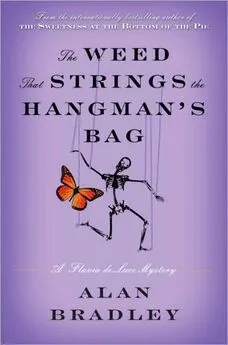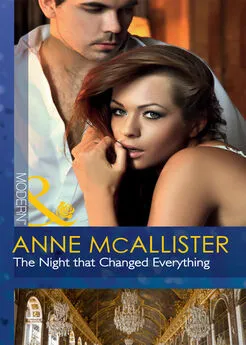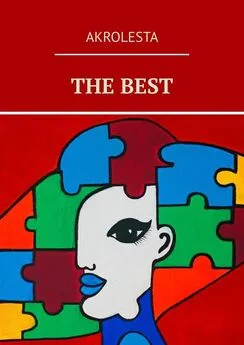Ed Lacy - The Best That Ever Did It
- Название:The Best That Ever Did It
- Автор:
- Жанр:
- Издательство:неизвестно
- Год:неизвестен
- ISBN:нет данных
- Рейтинг:
- Избранное:Добавить в избранное
-
Отзывы:
-
Ваша оценка:
Ed Lacy - The Best That Ever Did It краткое содержание
The Best That Ever Did It - читать онлайн бесплатно полную версию (весь текст целиком)
Интервал:
Закладка:
“Already wired them. FBI is in the case now. They'll be here in the morning. We'll have to shake down the Andersun family again—why the hell should this Brown get a passport as Andersun? Maybe he's a relative, or ...?”
“At least we know why the real Andersun was killed,” I said.
“Do we?” Al asked.
“Look, for some reason Brown gets a passport under Andersun's name. Then Brown reads in the papers about the kid winning the cash, heading for Paris. Meaning the real Andersun would need a passport, find out about Brown getting one in his name—so Andersun is knocked off.”
“Too simple. For all we know there can still be two Andersuns, or maybe Brown and this other Andersun are the same guy, or again, Brown and our Andersun may have been working together,” Al said, and in the early morning his voice was so hoarse it was a continuous whisper. “Still a lot of ifs we know strictly from nothing about. Like we haven't any idea how Turner fits into this.”
Franzino yawned. “First thing we do is grab some shut-eye, see what those FBI glamour boys come up with in the morning. We might as well use the cots upstairs.”
We finished our coffee and trooped upstairs and stretched out on some cots. The coffee, or the excitement, kept me awake. When I heard Al move, I asked, “Got any sodas in your car?”
“Yeah, got some cans of grape.”
“With gin or rum? I need a shot.” I sat up and put on my shoes.”
“Certainly never appreciated your talents, Barney. A comedian, too. Find the cans in the trunk—here's the keys.”
Dawn was starting to lighten the sky as I drank two warm grape sodas spiked with gin. I went back upstairs, hit the cot, and the next thing I knew it was bright sunlight, and I was alone.
I checked my wallet, found the can and washed my mouth out, ran cold water over my face. It was ten o'clock and Al and Franzino were downstairs, belching from a heavy breakfast. Nobody from Washington had shown up. I went out and ate, called Ruthie, who was bubbling over, having a big time. I told her I'd call back in a few hours and Betsy got on the phone and asked what Ruthie ate, and I heard the kid say, “I told you, Betsy, anything you eat. My goodness, what do you think, I still go for those sloppy baby foods?”
I was a little worried—Betsy was bubbling too.
A guy from the Passport Division of the State Department and two FBI men finally arrived, all of them dressed in natty banker's gray suits, white shirts and dark ties—like it was a uniform. They had the passport application, the duplicate picture.
According to the application, Andersun was five feet, six inches, had red hair and brown eyes. There weren't any “distinguishing marks or features,” and the purpose of his trip was “Travel.” One Irving Spear of a Bronx address had sworn on the application that he had known Franklin Andersun for ten years. Franzino had the address checked—it turned out to be another rooming house and “Irving Spear” had lived there months ago. Nobody knew anything about him except he was tall and “well spoken,” and now and then drank in his room.
We all stared at the picture of Andersun—or Brown—the usual startled-looking passport photo of a young man with thick hair, quiet eyes, and a wide nose. The State Department said the passport had never been used, which meant Brown was still in the U.S.A.
The application was too old and smudged for fingerprints. All we really had was a sample of Brown's handwriting, and his picture. It was something, but it still added up to zero.
The State Department and the FBI said they thought it had the looks of a passport ring, and when Franzino asked what that meant, the State Department man said, “There are criminals here—but mostly of the international variety—who are stateless and want to travel. Other criminals, experts, can alter a passport once they have the seal, the actual paper. Depending upon the person who needs a passport, an altered one can bring as high as twenty thousand dollars. They probably were paying Andersun for the use of his name, but why this—uh— Mr. Brown's picture was used... well, I don't get the connection.”
Al asked questions about passports, whether Turner ever had taken one out, and the Washington man said he would check.
A simple idea began to take shape in my simple noggin. The word “simple” was the key to everything... the names Brown, Smith, and the bartender said Brown's first name had been something like Tom or Dick or Harry. It wasn't any accident that Brown hung around an ordinary two-bit bar like the Grand Cafe, got into conversation with fellows who had simple lives, like Andersun, Irving Spear.
I asked the State Department man, “While you're checking on Turner, see if a passport has been issued to an Irving Spear and to a man named Smith—his picture will look like Spear's.”
“Spear—that's Andersun's sister's boy friend,” Franzino put in.
“I can check by phone,” the State Department man said. “What's the angle?”
“Let's check first—I'm not sure it is an angle—yet.”
“I don't like playing quiz games on a Sunday,” the State Department man said. “What's on your mind?”
“If this is a passport ring, then there should be one in the name of Spear, because a fellow named Smith talked to him once in the bar. You see, this Brown got into a beer argument with Andersun about the block, the old neighborhood. Claimed he'd been born there. That's the can opener for us.”
I collected an assortment of blank looks. Al Swan smiled at everybody, said, “Slow, Barney boy. Explain it to us again—in small words.”
“Way I see it,” I said, wondering if I was making a fool of myself, “is Brown learned from all this small talk where and when Franklin Andersun was born, name of his folks. Brown then gets a birth certificate as Franklin Andersun; do that by mail once he has the information, then rents a room under the name of Andersun. His buddy, Smith, is doing the same thing with the info he picked up in the bar from Irving Spear. With a birth certificate, a couple of lousy pictures—his nose, for example, looks out of shape, probably stuffed with cotton, and everybody said his hair was too red, so that was a dye job. Okay, with the birth certificate, the pictures, and Smith as a friend and witness under the name of Spear, Brown plunks down ten bucks, makes out a passport application, and in due time gets the passport, via registered mail, at his room. At a different address, with Brown as his witness, Smith gets a passport in the name of Irving Spear. The lads then chuck their rooms, dye their hair another shade, find a new bar, and start all over again.” I smiled at one and all, as if I'd explained everything.
Franzino broke the silence with, “Wouldn't they be recognized when applying for a passport the second time?”
The State Department man shook his well-brushed head.
“We have two offices in New York City, others in Washington, Philadelphia, all over the country. Be simple and comparatively safe for them to try this five or six times, meaning they end up with a dozen passports, besides their own. Let me call Washington, check on Turner, Smith, and Spear.”
We were sitting around the office of the detective squad, and the State Department man left to make the call as Al said, “Racket sounds too simple.”
Franzino ran a finger along the beard stubble on his lean jaw. “Simple rackets are always the ones that work.”
“If Andersun was in on a big deal like this, we'd have found some trace of it,” Al said.
One of the FBI's asked, “And if this Brown has the passport, why should he kill Andersun months later?”
Before I could answer, Franzino said, “The thing is, Andersun wasn't in on any deal. The lead we've overlooked was the story in the papers about Andersun planning to use the prize money for a trip to Paris, which meant...”
“Why Brown and Smith operated in bars like the Grand Cafe,” I cut in, determined to at least explain my own idea, “was because there was little chance of any of the boys in the bar ever taking a trip out of the country. Once Andersun applied for a passport, the State Department would investigate, and the whole deal would be cooked. They had to stop the real Andersun, and they did it with a bullet.”
The State Department man returned. There was a passport issued to an Irving Spear, none to Turner, and they were checking all the Smiths and Browns. A photostat of Spear's application was being flown in, and handwriting and photo experts were checking Brown's face and writing against other recent passports.
There wasn't anything to do for a couple of hours, and I had some coffee with Al. Then we drove over to the Turner apartment. Betsy and the kid were mixed up in cloth and patterns, and we were in the way. The last thing Ruthie wanted was to leave, so I said I'd phone later, maybe take them both out to supper, and after that—no matter what—Ruthie was going home.
As we left, Al gave me an evil grin, croaked, “What a domestic scene—mamma, poppa, and baby,” and started to whistle “My Blue Heaven,” and I told him to shut his corny trap. We went for a ride and I put on some speed—with Al's badge beside me I didn't have to worry about a ticket. Al insisted his Caddy could outrun my car, but backed down when I offered to bet him ten bucks. I drove back to the station house and we waited around some more, before the Spear application came in.
Brown's buddy, Smith, was six feet tall, weighed 196 pounds, had a mole on the right cheek. From the picture he looked like a handsome, distinguished young man, but his bald dome made him look older than thirty-four. One of the FBI lads said the mole was probably make-up and his head had been shaved for the picture. Franklin Andersun had signed as his witness, and Franzino said, “These jokers thought of everything—there's some attempt to disguise his handwriting here. Tomorrow I'll have my men check every passport photo shop in the city with these copies. See what we come up with. Of course we'll have every dock and airfield watched, in case they try to leave the country.”
“A passport is good for two years,” one of the FBI men said. “They can lay low till the summer, when the travel rush is on.”
“Another possibility—they could have skipped,” the State Department man said. “They could have gone to Canada, Mexico, some of the West Indies—without passports—then use them shipping out down there.”
Franzino sighed. “Or they could have taken a plane out the same night of the murder, for all we know. Hope this isn't another blank wall.”
Al shook his head. “I got a hunch they're still here, playing it too cool. Also got a hunch this is it. Like shaking out a tangled fishing line—once you get the right line, it all straightens out.”
There wasn't a thing to do but wait till Monday morning, while Washington checked, so we all knocked off for the day. I watched the cops line up before the desk as they were turning out a platoon, then I stopped into Franzino's office, asked, “How about releasing Louise now?”
“What did that whore do for you?” he growled, but had them both in his office within a few minutes. She looked bad, her face puffy and strained from worry and lack of sleep. Cliff looked okay, hair as slickly combed as ever. Franzino told them, “I'm letting you go as a favor to this big cluck. There's two conditions—break either of them and I'll toss you back in the can, lose the key. Don't move or become hard to find, in case I want to get in touch with you. And no hustling. Soon as this case is over, both of you get the hell out of my precinct.”
Читать дальшеИнтервал:
Закладка:


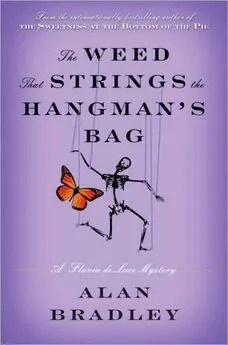
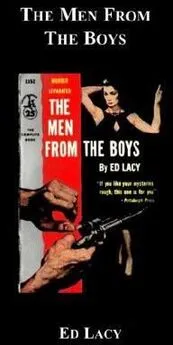
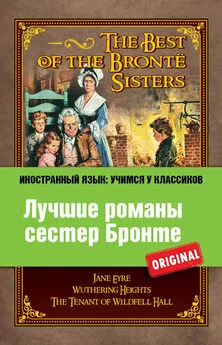
![Владимир Пресняков - The Best [Авторский сборник]](/books/1067616/vladimir-presnyakov-the-best-avtorskij-sbornik.webp)
